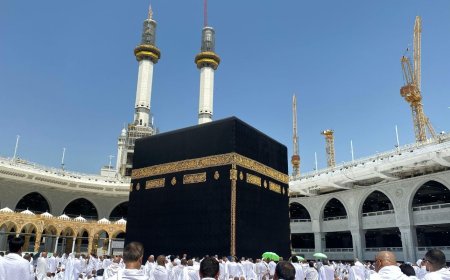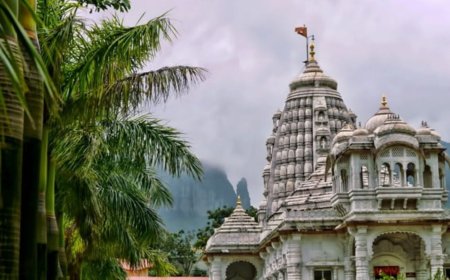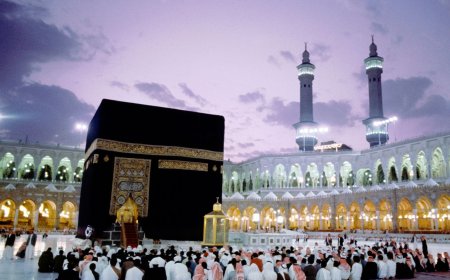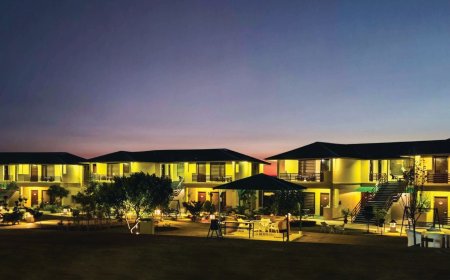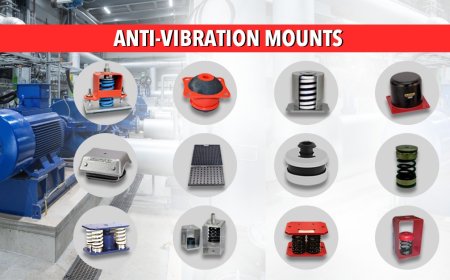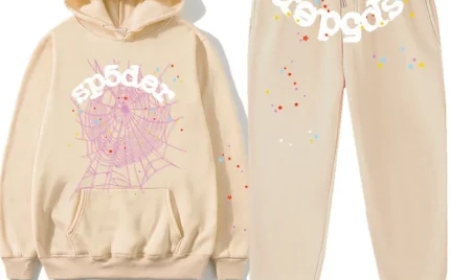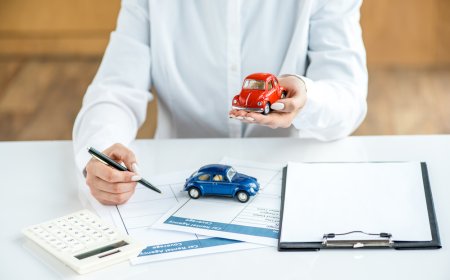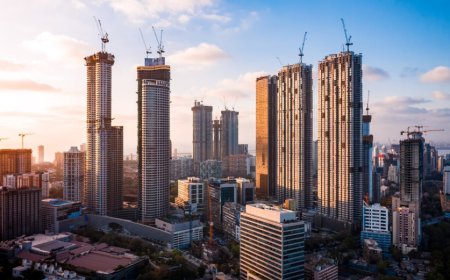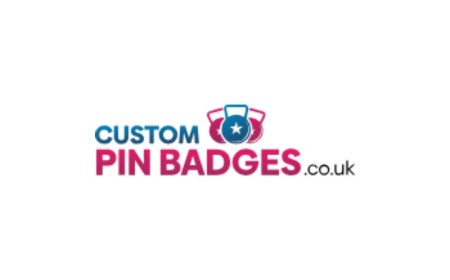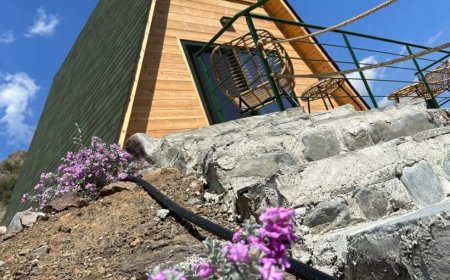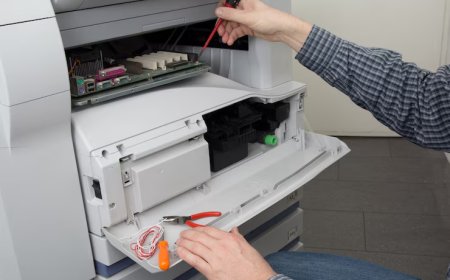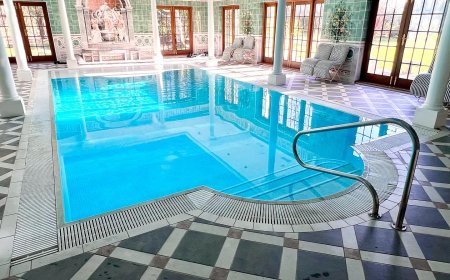Top 10 Cocktail Making Classes in Washington
Top 10 Cocktail Making Classes in Washington You Can Trust Washington’s vibrant culinary scene has long been celebrated for its farm-to-table dining, craft breweries, and wine trails—but in recent years, the art of mixology has risen to prominence as a cultural cornerstone. From the bustling streets of Seattle to the quiet charm of Olympia, cocktail making has evolved from a barkeep’s secret craft
Top 10 Cocktail Making Classes in Washington You Can Trust
Washington’s vibrant culinary scene has long been celebrated for its farm-to-table dining, craft breweries, and wine trails—but in recent years, the art of mixology has risen to prominence as a cultural cornerstone. From the bustling streets of Seattle to the quiet charm of Olympia, cocktail making has evolved from a barkeep’s secret craft into a widely embraced skill, taught in dedicated studios, historic venues, and even rooftop gardens. But with so many options flooding the market, how do you know which cocktail making classes in Washington are truly worth your time and investment?
Trust isn’t just about glowing reviews or fancy packaging. It’s about certified instructors, transparent curricula, hands-on learning, and a proven track record of student satisfaction. Whether you’re a novice looking to impress at your next dinner party or a seasoned enthusiast aiming to refine your technique, the right class can transform your understanding of spirits, balance, and presentation. This guide cuts through the noise to deliver the top 10 cocktail making classes in Washington you can trust—vetted for quality, consistency, and authenticity.
Why Trust Matters
In an era where anyone can call themselves a “mixologist” after watching a YouTube tutorial, the difference between a good class and a great one lies in credibility. A trustworthy cocktail making class doesn’t just teach you how to shake a martini—it teaches you why you shake it, what ingredients complement each other, how to source quality spirits, and how to adapt recipes to seasonal produce and personal taste.
Trust is built on four pillars: instructor expertise, curriculum depth, facility standards, and student outcomes. The best programs in Washington are led by professionals with years of experience in high-end bars, distilleries, or hospitality management. They don’t rely on gimmicks or branded bottles—they focus on technique, theory, and real-world application.
Additionally, trusted classes prioritize small class sizes, ensuring personalized feedback. They use fresh, local ingredients and avoid pre-made syrups or artificial flavors. They encourage questions, offer take-home guides, and often provide access to alumni networks or continuing education opportunities. Most importantly, they don’t promise you’ll become a professional bartender in one session—they empower you to become a confident, knowledgeable home mixologist with lasting skills.
Choosing a class based on trust means investing in your own growth, not just a one-time experience. It means walking away not only with a few signature cocktails but with the ability to innovate, troubleshoot, and elevate any gathering—whether it’s a quiet evening at home or a weekend soiree with friends.
Top 10 Cocktail Making Classes in Washington You Can Trust
1. The Pacific Northwest School of Mixology – Seattle
Founded in 2015 by former head bartender at The Roosevelt, The Pacific Northwest School of Mixology has earned a reputation for rigorous, science-backed instruction. Their curriculum blends classic techniques with modern innovations, covering everything from fat-washing and smoke infusion to the chemistry of dilution and temperature control.
Instructors are certified by the United States Bartenders’ Guild and regularly contribute to regional cocktail publications. Classes are capped at eight students, ensuring individual attention. The school’s studio features a fully equipped bar with professional-grade tools, including rotary evaporators and hand-pressed citrus presses.
Students consistently praise the depth of the syllabus, particularly the “Flavor Architecture” module, which teaches how to build balanced cocktails using aroma, acidity, sweetness, and texture. Graduates receive a digital portfolio of recipes and access to quarterly tasting events featuring local distillers.
2. BarCraft Academy – Seattle
BarCraft Academy stands out for its immersive, multi-session format. Unlike one-off workshops, their flagship “Essentials of Craft Cocktail Making” course spans six weeks, with each session building on the last. Topics include spirit profiles, bitters and modifiers, garnish design, and bar hygiene standards.
The academy partners with over a dozen Washington-based distilleries, giving students direct access to distillers during guest lectures. Their facility includes a climate-controlled spirit library and a dedicated herb garden used for in-house tincture production.
What sets BarCraft apart is its emphasis on sustainability. Students learn how to reduce waste through zero-waste garnish techniques and repurposing citrus peels into oils and syrups. Graduates often return for advanced courses in barrel aging and cocktail pairing with regional cuisine.
3. The Capitol Hill Cocktail Collective – Seattle
Located in the heart of Seattle’s most vibrant neighborhood, The Capitol Hill Cocktail Collective offers a community-driven approach to mixology education. Founded by a group of local bartenders disillusioned with corporate bar training, the collective prioritizes creativity, inclusivity, and accessibility.
Classes are offered in themed formats: “Herbal & Botanical Cocktails,” “Low-ABV & Sober-Friendly Mixology,” and “Pacific Northwest Spirits Spotlight.” Each session includes a tasting of three to five original recipes developed by the instructors, who have worked at Michelin-starred restaurants and James Beard-nominated bars.
What makes this collective trustworthy is its transparency. All recipes are published online post-class, and students are encouraged to share their creations on social media using a dedicated hashtag. The collective also offers sliding-scale pricing to ensure access for all income levels.
4. The Distillery at Snoqualmie – Snoqualmie
Located just outside Seattle, The Distillery at Snoqualmie is one of the few facilities in Washington that offers cocktail classes within an active distillery. This unique setting allows students to witness the entire production process—from grain to glass—before crafting their own drinks.
Their “From Still to Stir” course is a half-day immersion that includes a guided tour of the distillation equipment, a deep dive into the flavor profiles of their small-batch gin and whiskey, and a hands-on cocktail lab where students create three original recipes using the distillery’s spirits.
Instructors are master distillers with decades of combined experience. The program emphasizes terroir and how local botanicals influence flavor. Students leave with a personalized bottle of their own creation and a certificate of completion signed by the distillery’s founder.
5. The Whiskey & Herb Studio – Portland, WA (near the Oregon border)
Though technically located just across the border in Washington’s Columbia Gorge region, The Whiskey & Herb Studio draws students from across the state due to its unparalleled focus on herbalism and spirit pairing. Founded by a certified herbalist and former sommelier, the studio blends traditional mixology with ethnobotanical knowledge.
Students learn to identify and use native Washington herbs—such as salal, huckleberry, and Douglas fir—in cocktail formulations. Classes include foraging walks (seasonally available), tincture-making workshops, and guided tastings of herbal liqueurs produced in-house.
The studio’s curriculum is rooted in slow mixology: no shortcuts, no artificial flavors. Every syrup is made from scratch, every garnish is edible and locally foraged. Participants often describe the experience as “a sensory journey through the Pacific Northwest.”
6. The Urban Bar Lab – Tacoma
Tacoma’s only dedicated cocktail education space, The Urban Bar Lab, has quickly become a regional favorite for its modern, tech-integrated approach. Their classes use digital recipe cards, flavor-mapping software, and audio-guided technique demonstrations to enhance learning.
The “Cocktail Science Lab” course explores the physics of emulsification, the role of ice density in dilution, and how pH affects perceived sweetness. Instructors are trained in sensory analysis and hold certifications from the International Bartenders Association.
What makes the lab trustworthy is its commitment to data-driven feedback. After each class, students complete a digital evaluation that helps refine future sessions. The lab also hosts monthly “Cocktail Innovation Challenges,” where alumni compete to develop new recipes using local ingredients.
7. The Seattle Garden Bar – Seattle
Nestled atop a converted greenhouse in the University District, The Seattle Garden Bar offers a uniquely tranquil setting for cocktail education. Classes are held in the late afternoon, allowing students to enjoy natural light and the scent of blooming herbs as they learn.
Their “Garden-to-Glass” program focuses on seasonal, plant-forward cocktails. Students learn to make shrubs, floral syrups, and herb-infused spirits using ingredients harvested daily from the on-site garden. Instructors include a professional florist and a forager who teaches safe plant identification.
The bar’s philosophy centers on mindfulness. Each class begins with a moment of quiet reflection, encouraging students to engage all five senses. This approach has earned them features in regional wellness magazines and a loyal following among those seeking a more intentional cocktail experience.
8. The Speakeasy Society – Spokane
Spokane’s only immersive cocktail school, The Speakeasy Society, recreates the atmosphere of Prohibition-era bars while delivering modern technique. Students enter through a hidden door behind a bookshelf and are greeted by vintage glassware, candlelit tables, and a curated playlist of 1920s jazz.
Their “Retro Revival” course teaches classic cocktails from the 1920s–1940s with historical context, including how ingredients were sourced during wartime rationing and how glassware evolved. Instructors are cocktail historians with published research on Pacific Northwest drinking culture.
What sets them apart is their use of period-accurate tools: hand-cranked ice crushers, copper muddlers, and vintage bar spoons. Students leave with a vintage cocktail book signed by the instructors and a custom engraved shaker.
9. The Coastal Mixology Workshop – Bellingham
Located on the shores of the Salish Sea, The Coastal Mixology Workshop draws inspiration from the region’s marine ecosystem. Their signature class, “Ocean to Glass,” explores how coastal ingredients—sea salt, kelp, oyster liquor, and foraged seaweed—can elevate cocktail profiles.
Instructors collaborate with local fishermen and marine biologists to source sustainable, ethically harvested ingredients. Students learn to make saline solutions from seawater, smoke cocktails with driftwood, and infuse spirits with kelp extract.
The workshop emphasizes environmental stewardship. Each class includes a brief talk on ocean conservation, and a portion of proceeds supports local marine restoration projects. Graduates often return to participate in seasonal “Tide Table Tastings,” where cocktails are designed around lunar cycles and tide patterns.
10. The Art of the Pour – Olympia
Founded by a former sommelier and cocktail consultant for the Washington State Capitol, The Art of the Pour offers an elegant, refined approach to mixology. Their curriculum is modeled after European bartending academies, with an emphasis on precision, presentation, and tradition.
Classes are held in a historic 1910 townhouse with original woodwork and crystal chandeliers. Students learn to hand-cut ice, polish glassware to a mirror finish, and serve cocktails with choreographed movements. The “Etiquette & Elegance” module teaches how to present drinks with grace, from napkin folding to verbal description.
The school’s reputation rests on its exclusivity: only 12 students per term, and no online bookings—enrollment requires a personal interview. This selectivity ensures a serious, committed cohort. Graduates are often invited to assist at private wine-and-cocktail dinners hosted by regional chefs.
Comparison Table
| Class Name | Location | Duration | Class Size | Specialty Focus | Hands-On? | Take-Home Items | Price Range |
|---|---|---|---|---|---|---|---|
| Pacific Northwest School of Mixology | Seattle | 4 sessions | 8 students | Flavor science, technique | Yes | Digital recipe portfolio, tasting notes | $295–$375 |
| BarCraft Academy | Seattle | 6 weeks | 10 students | Sustainability, local spirits | Yes | Herb garden guide, distillery access | $420 |
| Capitol Hill Cocktail Collective | Seattle | Single session | 12 students | Herbal, low-ABV, inclusive | Yes | Online recipe library, tasting cards | $85–$120 (sliding scale) |
| The Distillery at Snoqualmie | Snoqualmie | Half-day | 15 students | Distillation, terroir | Yes | Personal bottle, certificate | $195 |
| The Whiskey & Herb Studio | Columbia Gorge | Full day | 8 students | Herbalism, foraging | Yes | Tincture kit, foraging map | $275 |
| The Urban Bar Lab | Tacoma | 3 sessions | 10 students | Cocktail science, tech integration | Yes | Flavor-mapping software access | $310 |
| The Seattle Garden Bar | Seattle | 2 hours | 10 students | Garden-to-glass, mindfulness | Yes | Seasonal recipe booklet, herbal sample | $145 |
| The Speakeasy Society | Spokane | Single session | 12 students | Prohibition-era classics | Yes | Vintage cocktail book, engraved shaker | $180 |
| The Coastal Mixology Workshop | Bellingham | Full day | 10 students | Marine ingredients, sustainability | Yes | Seaweed infusion kit, conservation guide | $260 |
| The Art of the Pour | Olympia | 5 sessions | 12 students | Etiquette, presentation, tradition | Yes | Crystal glass set, personalized manual | $550 |
FAQs
What should I look for in a trustworthy cocktail making class?
A trustworthy class prioritizes instructor credentials, small class sizes, and hands-on practice. Look for programs that use fresh, real ingredients rather than pre-made mixes, and that provide clear learning outcomes—not just a fun night out. Transparency about pricing, curriculum, and refund policies is also key.
Do I need prior experience to enroll?
No. Most of the classes listed cater to beginners, with foundational modules that explain tools, terminology, and basic techniques. Even advanced courses often offer prerequisites or optional review sessions for those new to mixology.
Are these classes suitable for groups or team-building events?
Yes. Many of these schools offer private group bookings for corporate events, bridal parties, or friend gatherings. The Capitol Hill Cocktail Collective and The Distillery at Snoqualmie are particularly popular for group experiences due to their flexible scheduling and customizable themes.
Can I become a professional bartender after taking one of these classes?
While these classes are not bartending certification programs, they provide a strong foundation that many students use to pursue professional careers. Graduates have gone on to work at Michelin-starred restaurants, open their own bars, or become cocktail consultants. The skills taught—balance, creativity, technique—are transferable to professional settings.
Are the ingredients used in these classes locally sourced?
Yes. Nearly all of the trusted programs emphasize local sourcing. From Washington-grown herbs to spirits distilled in Yakima and Walla Walla, the curriculum reflects the state’s agricultural and craft beverage diversity. This commitment to locality enhances flavor and supports regional economies.
How long do the classes typically last?
Class durations vary. Single-session workshops run 2–4 hours, while immersive programs span multiple weeks or full-day intensives. Most classes are scheduled on weekends to accommodate working professionals.
What should I wear to a cocktail making class?
Comfortable, closed-toe shoes and clothing you don’t mind getting a little wet or stained are recommended. Aprons are usually provided, but it’s best to avoid delicate fabrics. For formal classes like The Art of the Pour, smart casual attire is encouraged.
Do these classes include alcohol?
Yes, all classes involve tasting cocktails made during the session. However, non-alcoholic alternatives are always available upon request. Instructors are trained to monitor consumption and ensure a safe, responsible environment.
Are these classes accessible to people with dietary restrictions?
Yes. Most programs accommodate gluten-free, vegan, low-sugar, and alcohol-free needs. Be sure to notify the school in advance when registering so they can adjust ingredients and recipes accordingly.
Do I receive a certificate upon completion?
Many of the top programs offer certificates of completion, particularly those with structured curricula like BarCraft Academy, The Art of the Pour, and The Distillery at Snoqualmie. These are often framed and include the instructor’s signature, adding a personal touch for portfolios or gifts.
Conclusion
The top 10 cocktail making classes in Washington represent more than just a way to learn how to mix a drink—they offer a deeper connection to the region’s culture, ingredients, and craftsmanship. Each program, whether rooted in science, sustainability, history, or artistry, shares a common thread: a commitment to excellence and authenticity.
Trust in these classes comes not from marketing slogans or Instagram aesthetics, but from the quiet consistency of skilled instructors, the thoughtful design of their curricula, and the real transformation they inspire in students. You won’t just leave with a new cocktail recipe—you’ll leave with a new way of thinking about flavor, balance, and creativity.
Whether you’re drawn to the coastal herbs of Bellingham, the historic elegance of Olympia, or the distillery-to-glass journey in Snoqualmie, there’s a class here that aligns with your interests and values. The best choice isn’t the most expensive or the flashiest—it’s the one that speaks to your curiosity and respects your time.
Invest in a class that doesn’t just teach you how to shake, but why you shake. That’s the difference between a hobby and a mastery. And in Washington’s thriving mixology landscape, trust is the only ingredient that truly matters.





